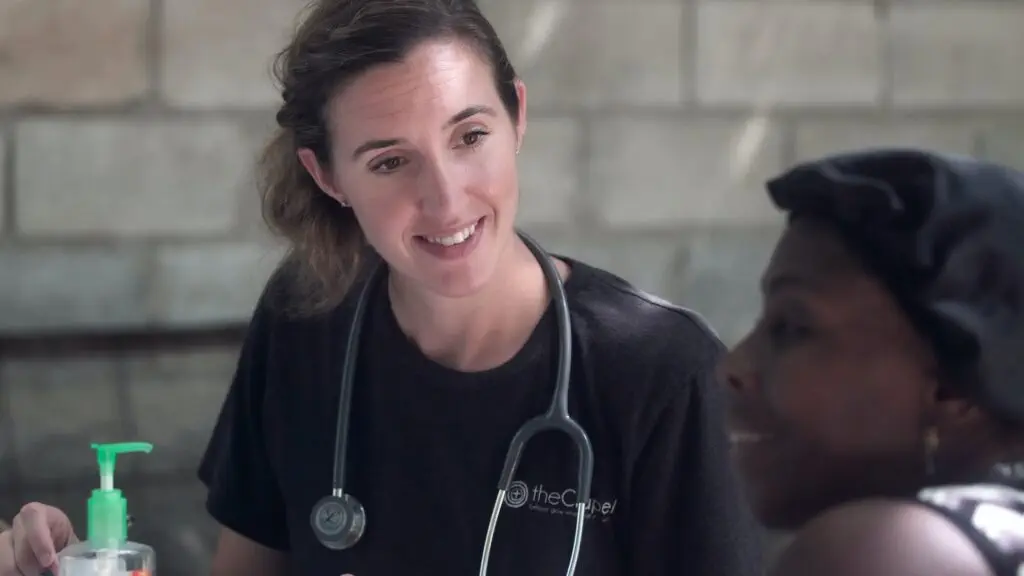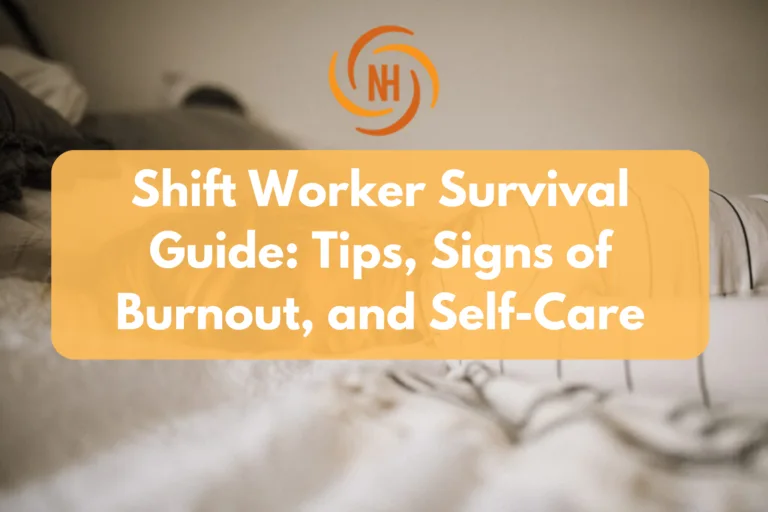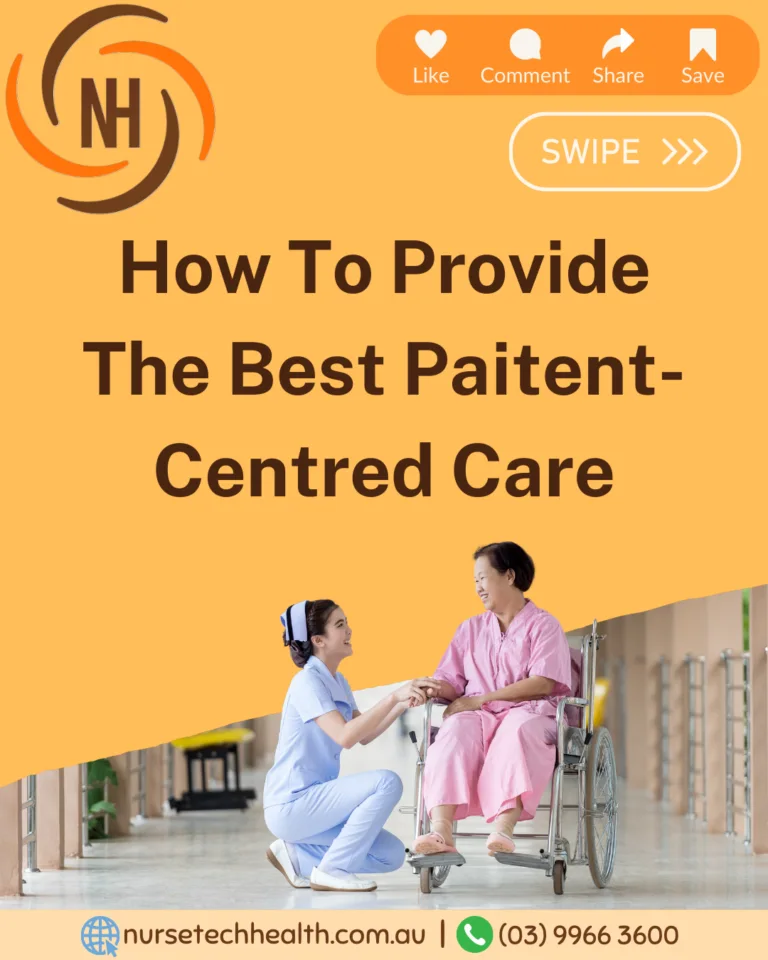How Nurses Can Build Strong Relationships With Patients
Building Strong Relationships as a Nurse
Imagine a world where healthcare is not just about treating symptoms, but about building strong relationships with patients. As a nurse, you have the power to make this vision a reality. By focusing on trust, communication, empathy, and active listening, you can create an environment that fosters meaningful relationships.
In this article, we will explore the strategies and techniques that will help you develop these vital skills and ultimately provide exceptional care to your patients. Get ready to transform the way you approach patient interactions and forge lasting connections that enhance their well-being.
Further reading: This article shows how Dr Mohsin Butt builds rapport with his patients.
The Importance of Trust and Communication
Trust and communication are essential for you, as a nurse, to build strong relationships with your patients. Effective communication allows you to establish rapport and create a foundation of trust that is crucial in providing quality care.
When it comes to effective communication, it is important to listen actively to your patients. By attentively listening to their concerns, fears, and needs, you can demonstrate empathy and understanding. This not only helps in establishing rapport but also allows you to address their specific healthcare needs more effectively.
Another aspect of effective communication is the use of clear and concise language. As a knowledgeable healthcare professional, using medical jargon may cause confusion or anxiety for your patients. By speaking in simple terms that they can understand, you can ensure that they comprehend the information being provided and actively participate in their own care.
In addition to verbal communication, non-verbal cues also play a significant role in building trust with patients. Maintaining eye contact, using appropriate body language, and displaying empathy through facial expressions all contribute towards establishing a connection with them.
Developing Empathy and Understanding
Developing empathy and understanding is crucial for you, as a nurse, to establish meaningful connections with those you care for. By cultivating empathy, you can truly understand and share the emotions and experiences of your patients. This ability to connect on a deeper level allows for compassionate care that goes beyond just treating physical ailments.
Empathy starts with active listening and paying attention to the needs and concerns of your patients. Take the time to sit down with them, maintain eye contact, and really listen to what they have to say. This not only helps build trust but also shows that you value their perspective.
Understanding involves putting yourself in your patient’s shoes and considering their unique circumstances. Recognise that each individual has their own fears, worries, and challenges. By acknowledging these factors, you can tailor your care approach accordingly.
Advocacy is another important aspect of developing empathy and understanding. As a nurse, it is essential that you stand up for your patients’ rights and ensure they receive the best possible care. Advocate for their needs within the healthcare system while respecting their autonomy.
Empathy and understanding are at the heart of our core values here at Nursetech Health. If they are important to you as well, consider joining our team to help provide quality service and care to those who need it.
Creating a Safe and Comfortable Environment
To create a safe and comfortable environment, you must prioritise the physical and emotional well-being of those in your care. This means taking steps to promote patient autonomy and providing effective patient education. By empowering patients to make informed decisions about their own healthcare, you can foster a sense of ownership and control that leads to better outcomes.
One way to promote patient autonomy is by involving them in the decision-making process. This can be done through shared decision-making, where both the healthcare provider and the patient collaborate to determine the best course of action for treatment. By explaining different options, risks, and benefits in an easily understandable manner, you can help patients feel more confident in making choices that align with their values and preferences.
Another important aspect of creating a safe and comfortable environment is through effective patient education. Providing clear information about diagnoses, treatments, medications, and potential side effects helps patients understand their condition better. It also enables them to actively participate in their own care by asking questions, expressing concerns or fears, and following recommended self-care practices.

Active Listening and Engaging With Patients
Active listening and engaging with patients can help you, as a healthcare provider, establish a deeper connection and better understand their needs. Patient-centred care is all about putting the patient at the centre of their own healthcare journey. By actively listening to them and engaging in meaningful conversations, you can create an environment that fosters effective communication.
When you actively listen to your patients, you show them that their thoughts, concerns, and experiences matter. This helps build trust and rapport between you and the patient. It also allows you to gain valuable insights into their condition or situation, enabling you to provide more personalised care.
Engaging with patients goes beyond just listening attentively. It involves asking open-ended questions, seeking clarification when needed, and showing genuine empathy towards their feelings. By doing so, you create a safe space for patients to express themselves fully without fear of judgment.
Effective communication is key to delivering high-quality patient-centered care. By actively listening and engaging with your patients, you can ensure that they feel heard, respected, and involved in their own care decisions. This approach not only improves patient satisfaction but also leads to better health outcomes.
Building Long-Term Connections and Continuity of Care
Building long-term connections and ensuring continuity of care is crucial for healthcare providers in order to maintain a consistent and reliable support system for their patients. As a nurse, you play a vital role in fostering patient autonomy and providing a patient-centred approach to care. Here are some strategies to help you build strong relationships with your patients:
- Establish trust: Take the time to listen actively and empathetically to your patients’ concerns, showing them that you value their input and respect their decisions.
- Promote open communication: Encourage your patients to ask questions, express their preferences, and participate in shared decision-making regarding their health. This will empower them to take an active role in their own care.
- Ensure consistency: Strive for continuity of care by being present throughout the patient’s healthcare journey. This means staying involved from initial assessments through follow-up appointments, and providing consistent support and guidance.
- Personalise care: Recognise the uniqueness of each patient by tailoring your approach based on individual needs, beliefs, and cultural backgrounds. By doing so, you demonstrate that you value them as individuals rather than just another case.
Frequently Asked Questions (FAQs)
What Are Some Effective Strategies for Managing Difficult or Challenging Patient Relationships?
When managing difficult patients and challenging patient relationships, it’s important to have effective strategies in place. Understanding their needs and concerns is key.
Active listening and showing empathy can help establish trust. Setting clear boundaries while maintaining a professional demeanour is also crucial.
Utilising communication techniques such as therapeutic communication and conflict resolution skills can aid in resolving conflicts and building stronger relationships with patients.
These strategies empower nurses to navigate difficult situations while providing the best care possible.
How Can Nurses Address Language Barriers to Ensure Effective Communication With Patients?
Addressing language barriers is essential for effective communication with patients. As a nurse, you can use various strategies to ensure understanding and build strong relationships.
Begin by showing cultural sensitivity, and respecting their language and customs. Use visual aids or translation services when needed.
Speak slowly and clearly, using simple language. Maintain eye contact and use gestures to convey meaning.
Are There Any Specific Techniques or Exercises That Can Help Nurses Develop Empathy Towards Their Patients?
Developing empathy is crucial for nurses to build strong relationships with their patients. Empathy-building exercises can help you in this process. By putting yourself in your patient’s shoes and actively listening to their concerns, you can better understand their emotions and experiences.
Engaging in reflective practices, such as journaling or participating in group discussions, allows you to reflect on your own biases and perspectives. These exercises foster a compassionate mindset that strengthens the nurse-patient bond and enhances patient care.
What Steps Can Nurses Take to Address and Alleviate Patient Anxiety or Fear in a Healthcare Setting?
To address patient anxiety and alleviate fear in a healthcare setting, take these steps:
- First, actively listen to their concerns and validate their emotions.
- Second, provide clear and honest information about their condition or procedure.
- Third, show empathy by using comforting words and gestures.
- Fourth, involve them in decision-making to empower them.
- Lastly, follow up regularly to ensure they feel supported.
How Can Nurses Build Trust With Patients Who May Have Had Negative Experiences With Healthcare Providers in the Past?
When patients have had negative experiences with healthcare providers in the past, building trust can be challenging. However, as a nurse, you can still create strong relationships by focusing on building rapport and improving communication.
Great Work!
You’ve now become a master of building strong relationships with patients. Your trust and communication skills are top-notch, and your empathy knows no bounds.
Creating a safe and comfortable environment has become second nature to you, as has active listening and engaging with patients. You’ve truly mastered the art of building long-term connections and providing continuity of care.
The nursing world is in awe of your expertise, and patients are lucky to have you by their side. Keep up the amazing work!








